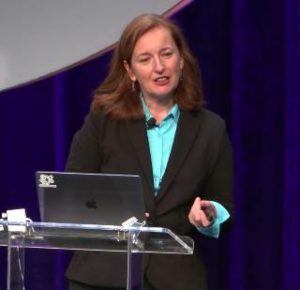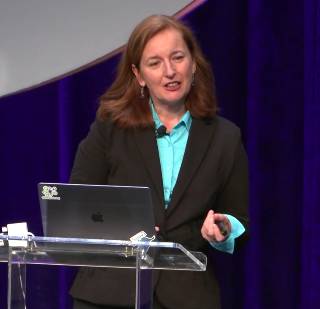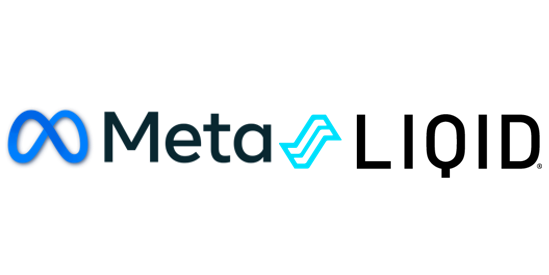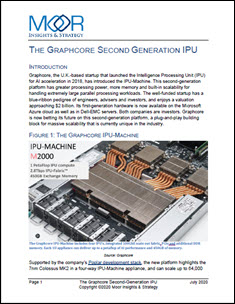 In this video from SC19, Ewa Deelman from the University of Southern California presents: The Role of Cyberinfrastructure in Science: Challenges and Opportunities.
In this video from SC19, Ewa Deelman from the University of Southern California presents: The Role of Cyberinfrastructure in Science: Challenges and Opportunities.
Cyberinfrastructure (CI): instruments, computational platforms, software, and people form a sophisticated platform that powers modern scientific discoveries. As demands for greater collaboration, more data analysis, more complex simulations, and computational power have grown in science, so have the challenges of developing and delivering robust CI to users. Sustainable and dependable CI is not developed in a vacuum; rather, it benefits from advances in Computer Science and provides a unique laboratory for Computer Science research. Grounded in the challenging and ever-increasing needs of a multitude of scientific applications, CI is continuously enhanced and driven to innovate.
This presentation examines selected modern scientific discoveries, such as the detection of gravitational waves from the CI perspective. It aims to answer the following key questions: first, what were the key CI solutions that enabled a particular scientific result? and second, what were the challenges that needed to be overcome? The CI examples will include science automation technologies, such as the Pegasus workflow management system and how it evolved over the last two decades as science applications and broader CI have grown in heterogeneity and scale. It will describe the algorithms and solutions that enable the robust execution of complex scientific workflows on DOE and NSF-funded high-performance and high-throughput computing systems.
This talk will conclude with emerging challenges and opportunities in the CI landscape.
Ewa Deelman is a Research Professor at the USC Computer Science Department and a Research Director at the USC Information Sciences Institute. Dr. Deelman’s research interests include the design and exploration of collaborative, distributed scientific environments, with particular emphasis on workflow management as well as the management of large amounts of data and metadata. At ISI, Dr. Deelman is leading the Pegasus project, which designs and implements workflow mapping techniques for large-scale applications running in distributed environments. Pegasus is being used today in a number of scientific disciplines, enabling researches to formulate complex computations in a declarative way. Dr. Deelman received her Ph.D. in Computer Science from the Rensselaer Polytechnic Institute in 1997. Her thesis topic was in the area of parallel discrete event simulation, where she applied parallel programming techniques to the simulation of the spread of Lyme disease in nature.




